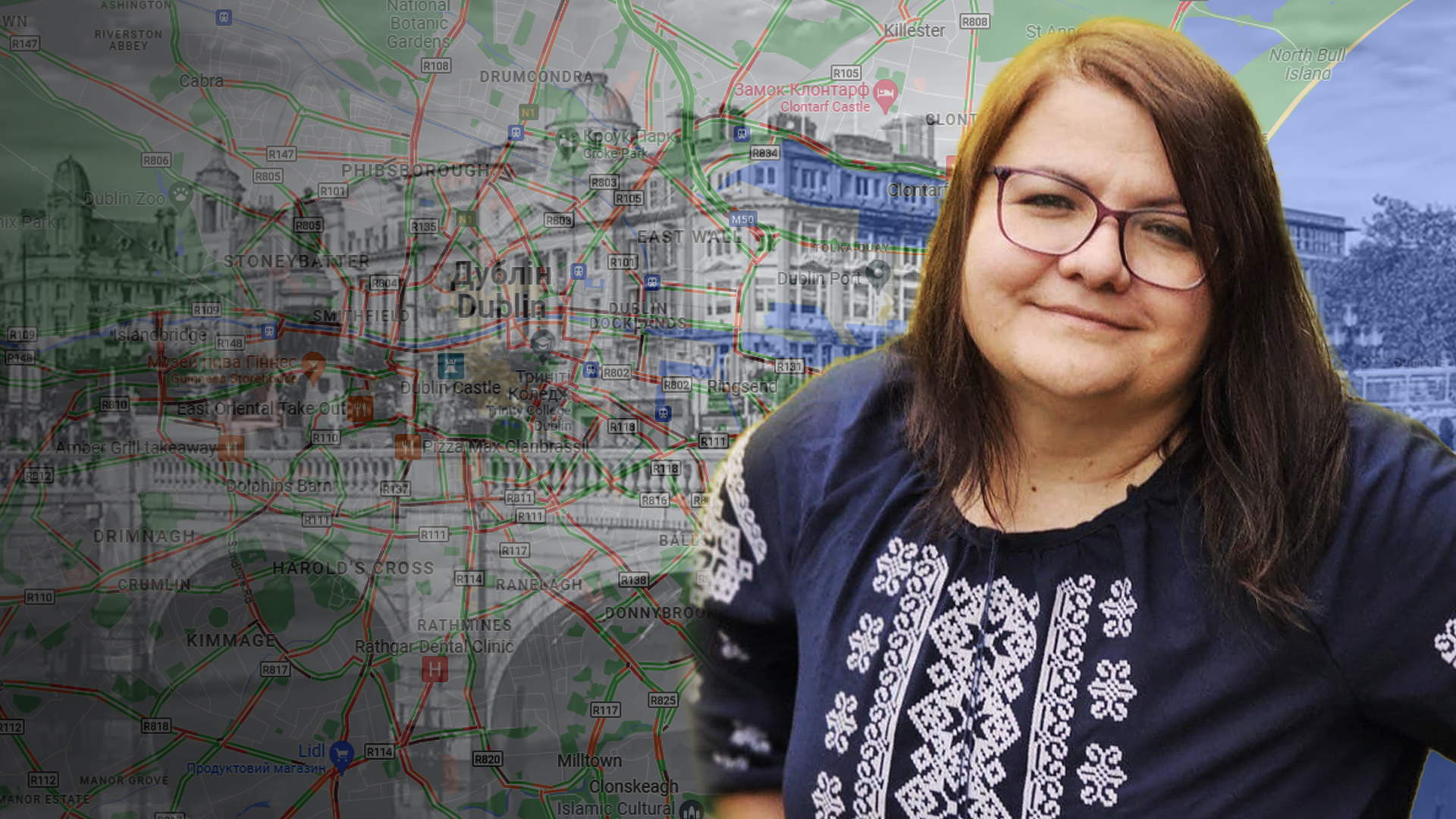
Today, we present the story of communications specialist Nina Mishchenko, who lives in Dublin together with her son Andriy. She writes columns about Ukraine for local publications and volunteers her time.
«Russian troops tried to capture Kyiv»
Before the war, I worked as a communications specialist at SAGA Development, the real estate development company. Like most Kyiv residents, I didn’t believe until the end that a full-scale war by Russia against Ukraine would begin. My sister, who lives in Ireland, had urged me to leave for Europe in advance. On the evening of February 23rd, I was still preparing a presentation, and on the 24th, we were supposed to have a big meeting at work.
Like everyone else, I woke up at night from the explosions. We live in Obolon, which is about 20-25 kilometers away from Bucha. The Russian forces were breaking through from this side because it’s the road to the center of Kyiv. We heard gunfire and the activities of sabotage and reconnaissance groups. On the neighboring street, some guys intercepted an APC from the saboteurs. On the way to the supermarket, my husband and I saw our troops at a checkpoint, how they captured a sabotage group and put them on the ground. That’s when my son, his former nanny, her son, and I decided to leave the capital. On the fourth day of the war, we left Kyiv for Lviv and then from there to Przemyśl. It took us a total of 20 hours. My son said back then that he didn’t appreciate what he had because, as it turns out, you can want to sit down and not have a seat to do so, want to lie down and not have a bed.
The Poles welcomed us warmly, handing toys to the children. I cried because I remembered how in 2014-2015 we collected clothes and food for people who were leaving Donetsk and Luhansk regions.
We were contemplating where to go next: my sister lives in Dublin, my cousin in Budapest, and another sister in Vienna. However, Ireland was one of the first countries to invite Ukrainians, cancel visas, and issue a «yellow paper» providing temporary protection.

The Irish people are incredibly warm and welcoming; they opened their hearts to us. It’s a small country with a population of five million, similar in size to our Kyiv and its surrounding areas.
At first, we lived with my sister, then with the Irish people. Now we live in a hotel for people with health problems because the war has exacerbated my illnesses.
The Irish granted Ukrainians the opportunity to work and essentially treated Ukrainians as equals to the Irish. We received the same privileges as the citizens of this country.
My son attends a local school here. Ukrainian children were accepted without any exams or tests, and 90% of them are studying in Irish schools.
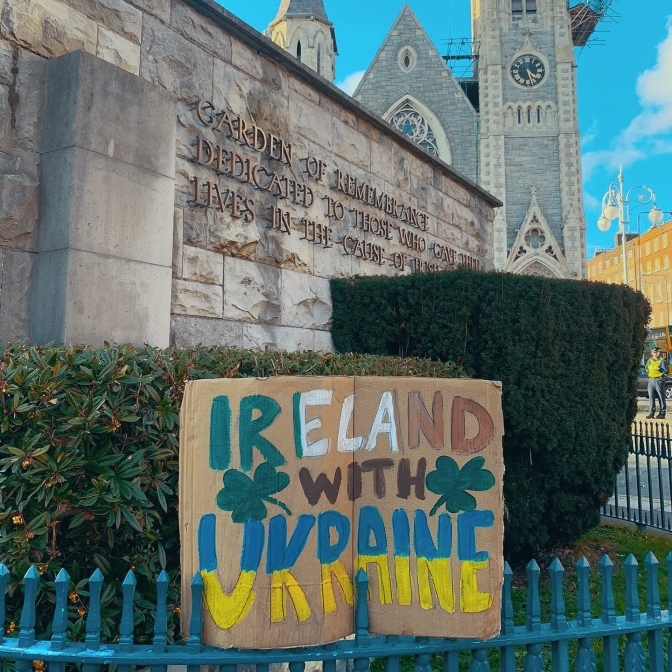
«We have a similar history of struggle»
The Irish understand us very well because they have a similar history of struggle against the British Empire. The Irish had their own famine, wars, and a significant number of people emigrated to America or perished during famines and wars. Ukrainians have experienced the same hardships.
Currently, there are 85,000 Ukrainians residing in Ireland. When the dam of the Kakhovka Hydroelectric Power Station was blown up, Ireland allocated one million euros in aid to the Ukrainian Red Cross.
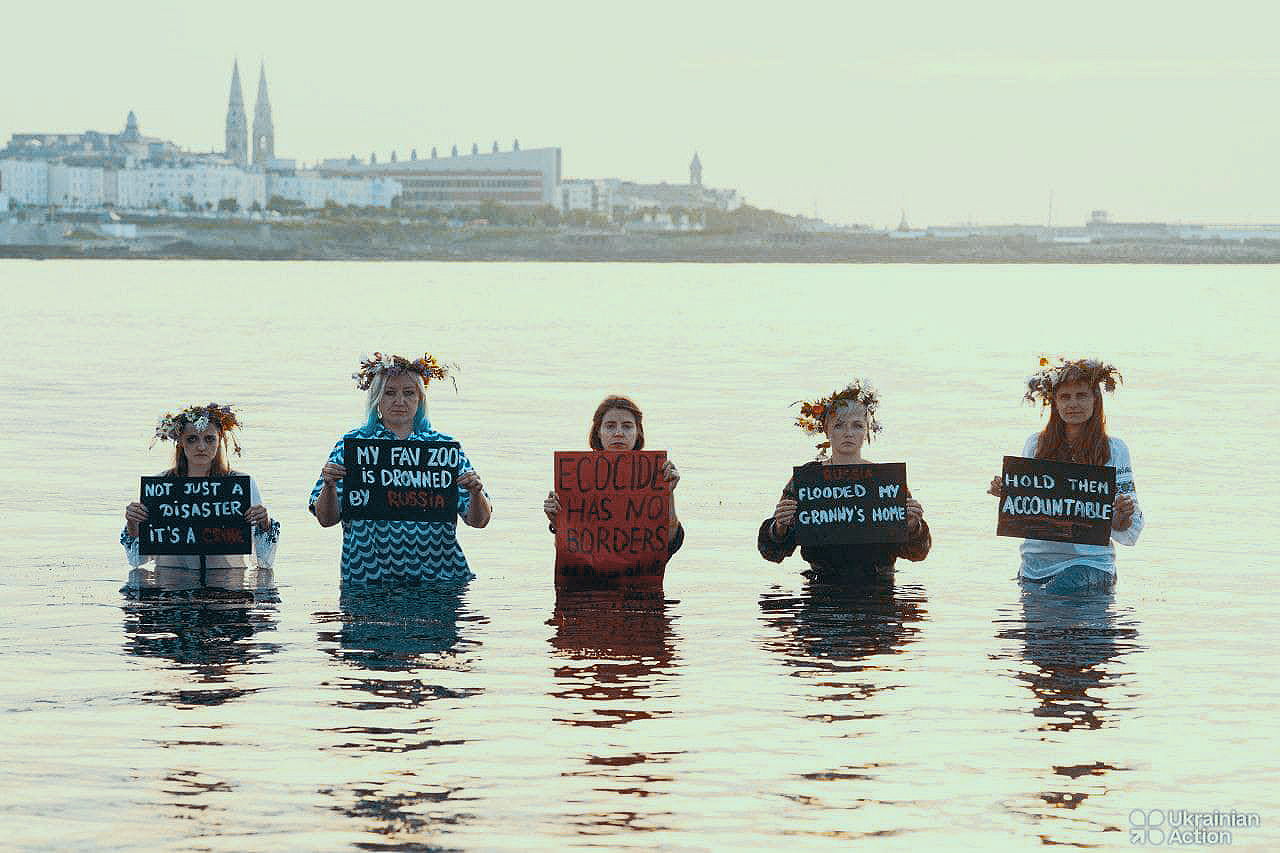
The Irish Red Cross provides significant assistance to Ukrainians. They collaborate with community organizations on numerous projects and financially support the Ukrainian Centre in Dublin. As a volunteer involved with the NGO Ukrainian Action in Ireland, I have witnessed this firsthand. Initially, we had a chat group for Ukrainians in Ireland to provide mutual support and guidance, but it has since evolved into a significant undertaking. We have conducted two comprehensive studies on Ukrainians in Ireland, and the Irish government listens to us and utilizes our data for planning further assistance to Ukrainians. In fact, over 40% of the respondents in our survey expressed a desire to remain in Ireland.
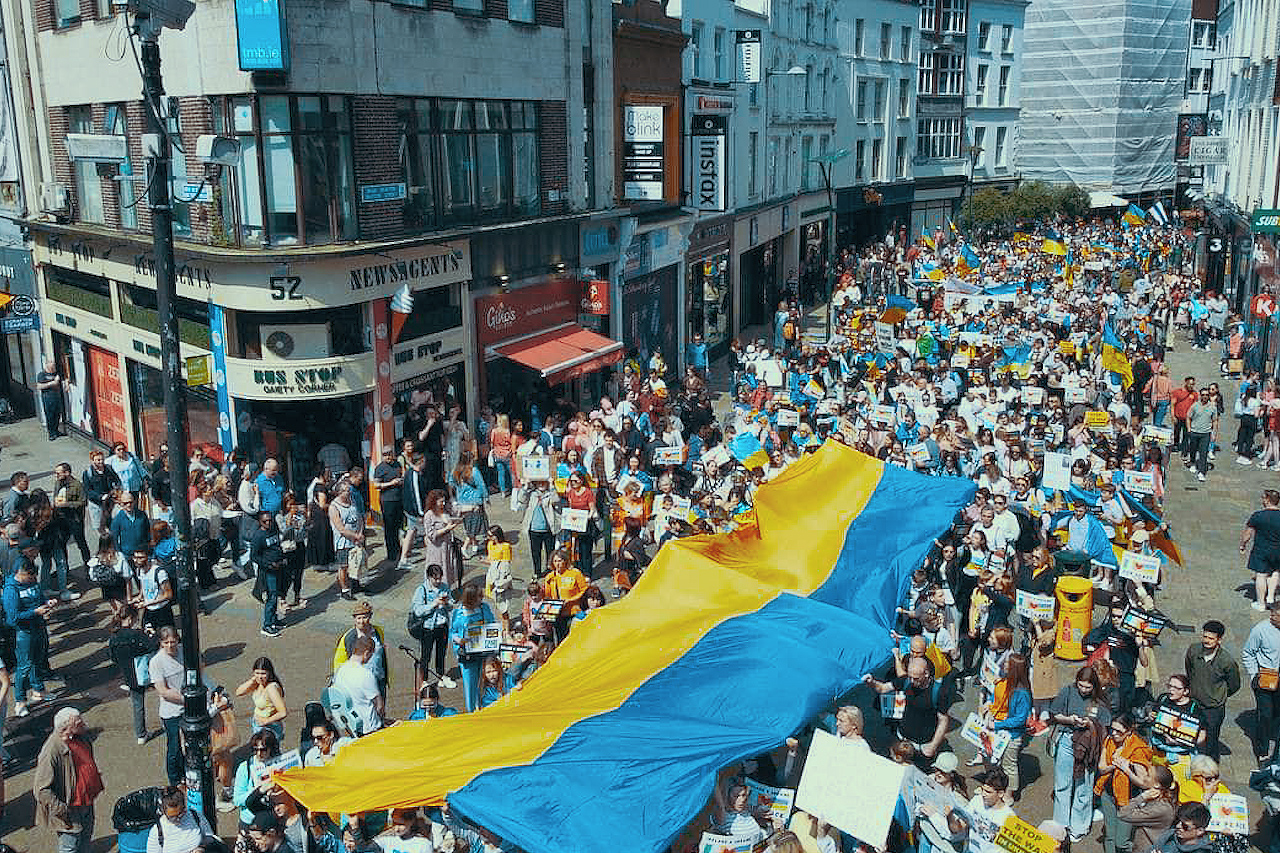
The main issue here is housing. It existed even before Ukrainians moved here (prior to the full-scale Russian invasion in Ireland, there were three to four thousand Ukrainian citizens). There is a demand for 250,000 houses and apartments, but only around 30,000 are built each year, resulting in long queues for housing. I’m told that there is a housing issue throughout Europe, to which I respond, «No, multiply that problem by 10.» Even native Irish people find it difficult to find and rent accommodation. One apartment can have as many as 300 applicants.
Currently, «hosts» who take in Ukrainian families receive around 800 euros. However, according to statistics, two-thirds of Ukrainians live in state-provided accommodations such as hostels, dormitories, monasteries, and so on. Additionally, there are still 20,000 individuals in Ireland under the international protection program, who reside here due to conflicts and issues in their home countries, as well as over 12,000 Irish homeless individuals in need of housing.
«I don’t know when I will return»
The most difficult question: whether I will return and when? Honestly, I don’t know. Nearly 25% of the surveyed Ukrainians in Ireland don’t know if they will stay here. Currently, my son and I have decided that we will definitely stay in Ireland for the next academic year, and then we will see.
For me, the most important thing is the safety of my child, that my son can study offline, away from shelling. For many, this is crucial because two-thirds of Ukrainians in Ireland are women with children and elderly parents.
Half of the Ukrainian children continue their education in two schools. My son completed the 5th grade online in a Ukrainian school, but this year he has shifted his focus to the new Irish school because learning in English is very challenging.
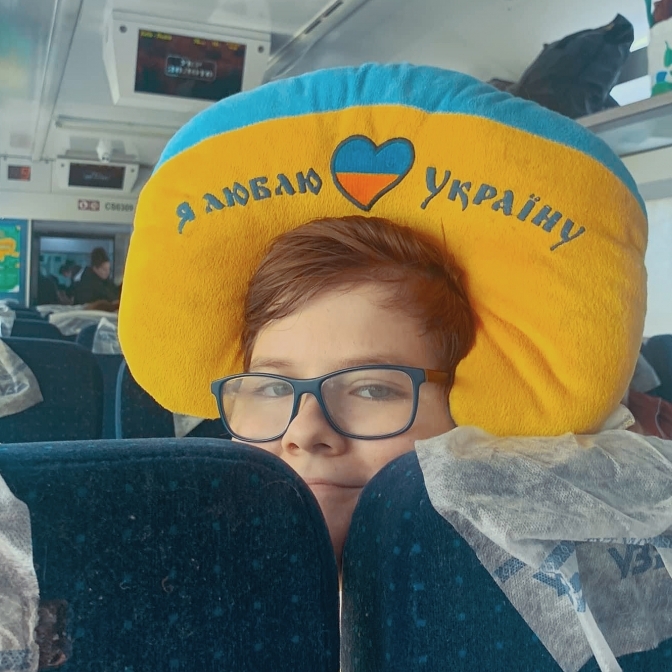
People have gone to Ireland, Britain, France, the Netherlands, countries with the best education systems, and it saddens me that they are forced to retake the Ukrainian curriculum, redo certain subjects. Here in Ireland, a lot of attention is given to how the child adapts. 90% of teacher conversations revolve around making the child happy, making it interesting for them, and parents support them in this. Children enjoy European schools because the approach is completely different here. In primary school, the focus is on language, mathematics, and soft skills. Knowledge deepens with each passing year, and in secondary school, there are integrated programs. So, this is another challenge – how to take these achievements into account in Ukraine.
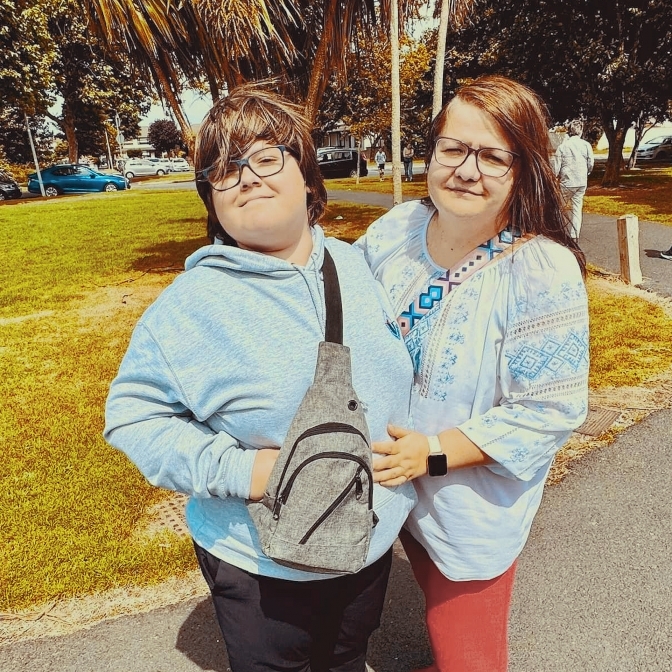
By the way, 65% of Ukrainians in Ireland say that it’s difficult for them to find work without knowing the language. Ireland is trying to organize language courses, but there isn’t a system in place like in Germany, which has been accepting refugees for many years. There are separate programs here, but they are not sufficient. After all, it’s challenging to organize language courses for 50,000 Ukrainians. According to statistics, 30% of Ukrainians are already working in Ireland, and nearly 30% are studying. It’s difficult for mothers with children because there are no kindergartens here, and those that exist can cost 800-1000 euros per month. There are also no after-school care programs in schools.
How do we survive? Initially, I provided comments to local publications as a Ukrainian volunteer, and soon I was invited to write as a contributing author. Now I write columns for the Irish Independent, articles for the European Supermarket Magazine, and take care of my health. I also contribute to Ukrainian media. I’m considering furthering my education because in order to work in the professional sector, you need to have a C1 level of English proficiency.
In my columns and articles, I try to share what is happening in Ukraine, how Ukrainians are unique, and what our culture is like. I have written about language, particularly highlighting the forced Anglicization that occurred in Ireland and how the Irish (Celtic) language differs greatly from English. The Irish people are making efforts to revive the language, and it is taught in schools, but a significant percentage of the population still doesn’t use Irish in their daily lives.
We all live through the news. There are many injured people, children who have left the occupied territories. Recently, I wrote that our children can be sad not because they feel unwell or don’t want to communicate, but because there can be shelling in Ukraine, and they worry about their relatives and friends. We have a military training aircraft field here, so a woman from Mariupol was terrified of the sound because it reminded her of the sound of a military aircraft and the fear that there would be bombings again... Also, children have tried water from a local lake because their parents told them that if the water runs out, they will have to drink any water, even from puddles or lakes. What have these children experienced if they are in a peaceful country and have to drink water from a lake?!
«I don’t want people to compare who has suffered more.»
Another issue is the bullying of refugees from Ukraine, especially mothers with children. I hope that this desire to divide and create conflicts among us is Russia’s agenda, and that these topics are injected into our information space. However, it is psychologically distressing.
Many refugees share that when Kyiv is shelled, they feel it, waking up at night and experiencing anxiety. And here, it appears much more terrifying than in Lviv, Kyiv, or Dnipro. You see the most horrifying, most emotional footage in the news. It’s easier for people who return than for us here. And when you see comments saying that you fled and are living in luxury...
Therefore, in order for people to return to Ukraine, it is necessary to establish communication so that refugees feel needed by Ukraine, to avoid division between those who left, those who returned, and those who stayed. My grandfather, who lived through World War II, used to say that the main task of civilians is not to hinder the military. And if there are hostilities, one must leave, evacuate, in order to save the lives of children.
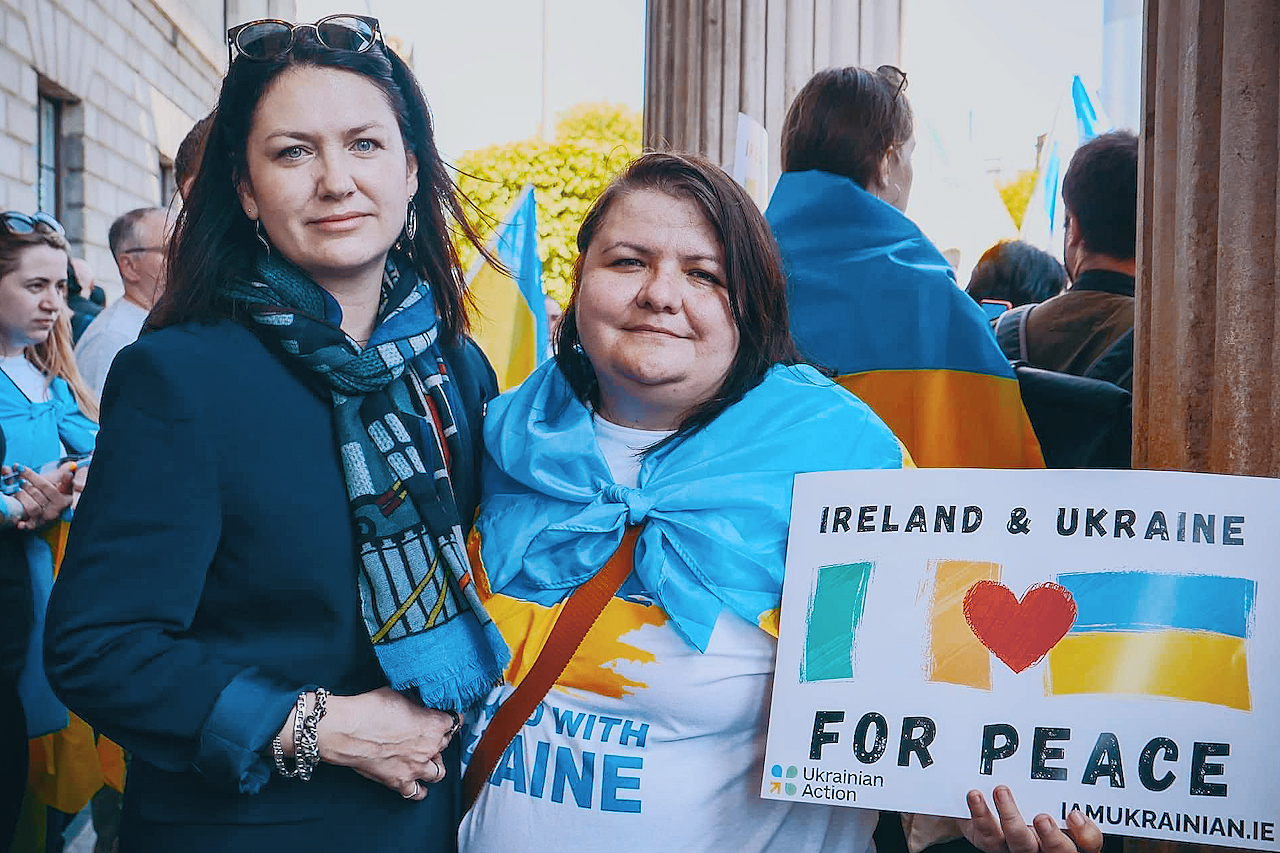
This support should be at the state level because people have been left face-to-face with their traumas and fears. A mother who stayed in Ukraine worries about what will happen to her children, runs to the bomb shelter, and blames herself...
Indeed, the experiences of living abroad can be incredibly challenging. Not understanding the language or the events happening around you adds another layer of difficulty. Many people end up working in jobs unrelated to their professions, and in some countries, finding employment without language skills can be nearly impossible. Ukrainians find themselves working in factories, as cleaners, feeling undervalued and marginalized. Emigration, even before the war, was already a complex process. But those who left the country before the war did so consciously, whereas now we have no choice. It is a forced step that causes trauma. It’s distressing to see people lose their jobs and their sense of stability. My psychotherapist compared our situation to a flower uprooted from the ground and placed in a jar of water. People want to feel that they will return, that they won’t be despised for leaving, devalued, or labeled as «not real» Ukrainians for their decision to seek opportunities abroad. I understand that these feelings stem from exhaustion, trauma, and the belief that others cannot truly comprehend their experiences. However, each of us has experienced our share of fear due to the shelling. It’s not a competition of who has suffered more or who lived under occupation. I know many people who have endured horrifying experiences, yet they are returning because of the fear of being disrespected or hated.
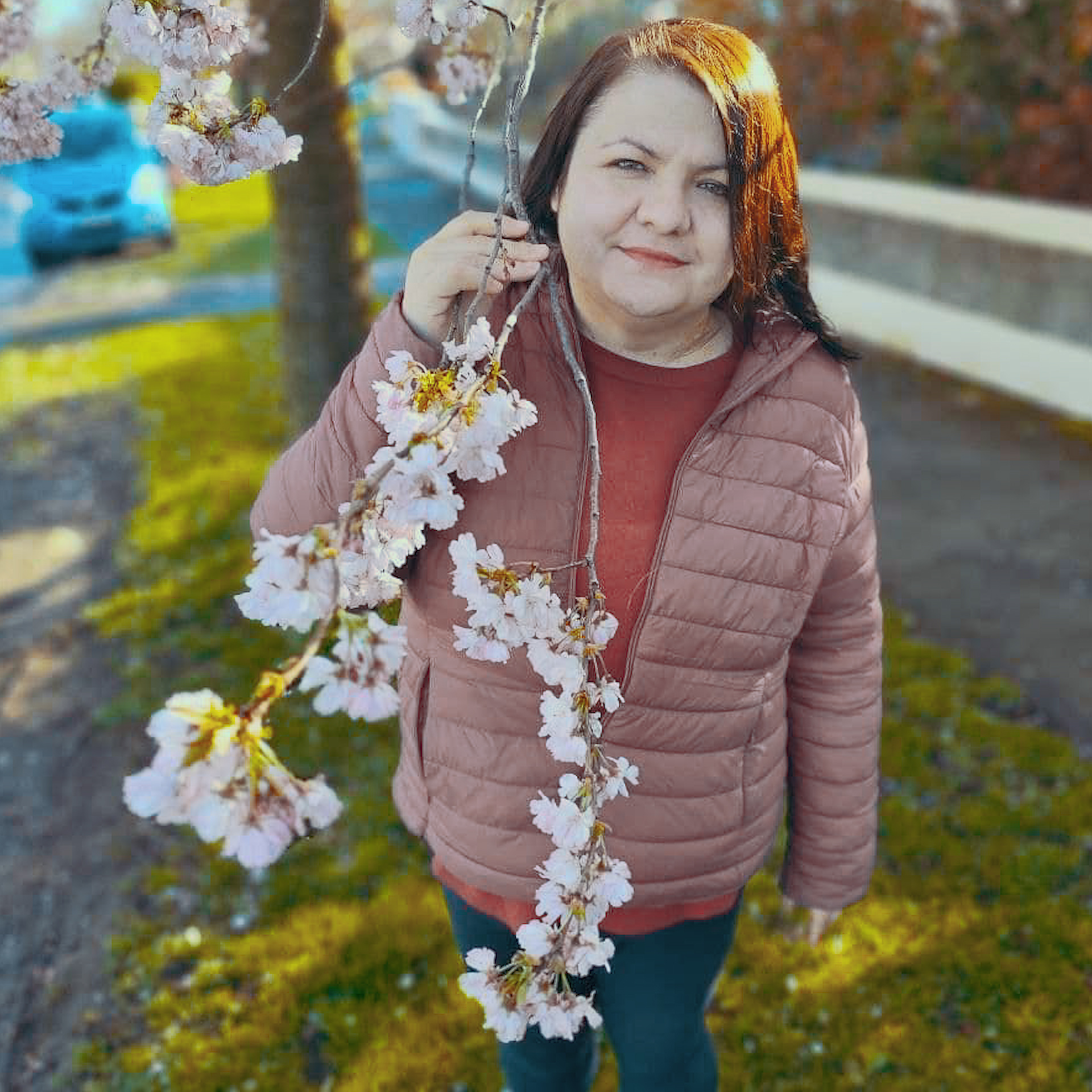
«We should not devalue people’s experience»
I want the communication policy of the state and opinion leaders who influence public opinion to be as follows: ‘Ukraine needs you, we are waiting for you with new knowledge and experience, because you are not just taxpayers or donors, your perspective is important to us.’ This will be the main prerequisite for people to return to Ukraine. When you see comments like ‘stay there, you can sit it out while I’m under shelling,’ you think, no, I won’t come back. It’s better for children here, it’s better for parents, there is support. By the way, in Ireland, grandmothers gather in cafes, drink coffee, and joke. They try to adapt people to life. All grandfathers and grandmothers are provided with wheelchairs or walkers. I like that. I understand that this grandmother would have stayed in her apartment at home and not gone out. These elderly people also try to preserve this support, to send it to Ukraine. But if they are disparaged, why should they return? People should feel needed by the state, friends, neighbors, and know that they are not labeled as deserters. They have the right to leave Ukraine, and they have the right to return.
People indeed have different mental states and different needs. What I really like about Ireland is that you can be anyone, study any profession – all professions are valued here. I wish we could adopt that. In Ireland, you won’t hear people say, «Ew, a janitor.» On the contrary, they appreciate janitors because they provide comfort. They are short of 100,000 people in the construction sector in Ireland to build more housing, so they help Ukrainians validate their diplomas and organize free courses for them. We shouldn’t devalue people’s experiences because every experience is important. Everyone should perform their job wherever they are. A mother who came here with her children and works three times a week – serving food in a hotel or working at a gas station – should hear, «It’s good that she is safe, both physically and psychologically.» Such messages should be conveyed.
«Emigrants saved Ireland»
At a time when Ireland was facing a severe economic crisis, Irish emigrants who had gone to America returned with money and businesses, thus saving the Irish economy. The Ireland we see today, in part, is thanks to the help of emigrants who once left but have now re-immigrated over several generations. Currently, every fourth or fifth American has Irish roots, and they support their homeland, making it one of the most prosperous countries in Europe. The average wage here is around 20-25 euros per hour. It may be expensive to come here from Poland or Eastern Europe, but the income level is high. It was the emigrants who once helped their country, and I would like to promote and advocate for a similar approach in Ukraine.
Yes, I have job requests from Ukraine, freelance projects. I teach at the Lviv Business School at UCU. I don’t feel that I’m not needed by Ukraine. It is very beneficial for me to work in marketing now, and I can easily work for Ukrainian companies from here. I know that many Ukrainians who had careers continue to work remotely for their companies. There are companies that have relocated. But emotionally, it can sometimes be challenging.
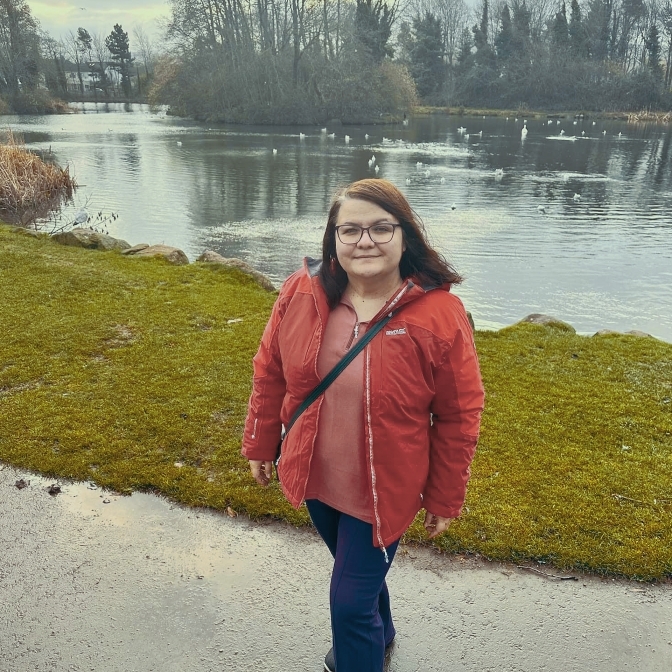
I write a lot about Ukraine in Ireland, but every time I post my column on Facebook, I wait for the «hits» to come. Because, honestly, I have very little emotional and moral resources to spend on arguments and negativity.
I recently posted a column where I wrote about feeling stressed because my Kyiv is being shelled, about wanting to wear a vyshyvanka (Ukrainian embroidered shirt), and about wearing a bracelet made from Azovstal steel that gives me strength. Maybe from Ukraine’s perspective, it may seem like, «Oh, what do you understand, what do you feel?» But we all have the trauma of being witnesses, of being survivors. And psychology tells us that psychological recovery will take a significant amount of time. Therefore, we need to think about our safety–both physiological and psychological.
What will be our victory?
The Ukrainian nation has become united. Independence Day is one of the main holidays. I see how Ukrainians gather for rallies throughout Ireland, wearing embroidered shirts and displaying flags. This sense of Ukrainian identity that we feel today has given us a feeling of nationhood. This is the most important thing.
Of course, it will be difficult. The economy is in ruins. We all believe in victory, but it’s hard to predict what it will look like. I believe that Ukraine will join both NATO and the European Union. We see that European countries are ready to extend temporary protection for Ukrainians until 2025 and grant permanent residency. They see us in Europe because we are holding the defense. The time will come when we will become part of NATO and the EU.

I believe that after the victory, Ukraine will attract investments and businesses to rebuild the country. I remember how in 2005, after the Orange Revolution, foreign companies came to us with investments.
The situation with housing and its renovation remains challenging, as people need a place to return to. Without donors, it will be difficult for us to recover. I hope that programs will be found to provide assistance in this regard.
Today, we feel ourselves as Ukrainians much more than ever before. Ukrainians shed tears when singing the anthem, when singing «Our enemies will vanish, like dew in the sun...» It truly resonates from the heart. It’s a pity that it comes at such a high cost. This is not our first war against Russia, but now it is a defining moment for the nation.
This piece was created with the support of the «Institute of Mass Information» as part of the project «Supporting Independent Ukrainian Media during the War,» funded by the Ministry of Foreign Affairs of the Kingdom of the Netherlands.
According to the Office of the United Nations High Commissioner for Refugees (UNHCR), as of early March 2023, approximately 8.1 million Ukrainians have left for European countries following the start of the full-scale Russian-Ukrainian war. Of these, around 4.9 million individuals have legalized their stay through the mechanism of «temporary protection» in those countries. Unfortunately, a significant portion of Ukrainians, including those from regions where there are currently no active hostilities, remain abroad. They may sometimes face public condemnation for their decision to stay abroad instead of returning to their homeland. The migrants themselves often express dissatisfaction with the weak communication between them and the Ukrainian government.
Translated by Yulian Lahun
Follow us on Facebook and Instagram. Lviv Now is an English-language website for Lviv, Ukraine’s «tech-friendly cultural hub.» It is produced by Tvoe Misto («Your City») media hub, which hosts regular problem-solving public forums to benefit the city and its people.












